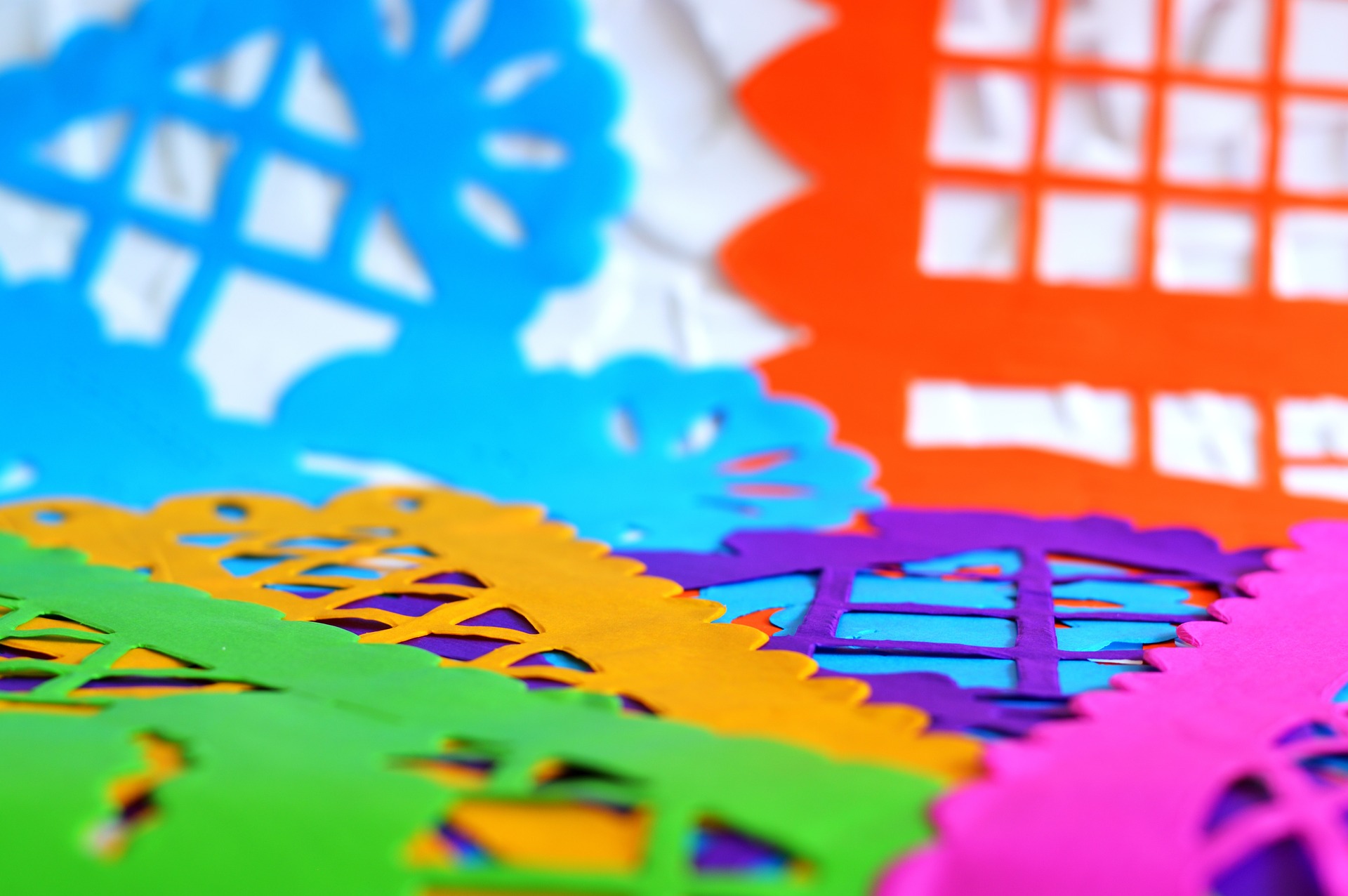
CELEBRATING HISPANIC HERITAGE MONTH WITH THE GRASSROOT PROJECT & LOVE.FÚTBOL
September 17, 2021
From September 15 – October 15, the US recognizes Hispanic Heritage Month celebrating the histories, cultures and contributions of Hispanic and Latino Americans whose ancestors came from Spain, Mexico, the Caribbean and Central and South America.
In honor of the celebration, we caught up with Tyler Spencer, Founder and Executive Director of The Grassroot Project (previous Beyond Sport Global Award entrants), to speak about the work they are doing to promote youth health among Latinx communities in Washington, DC. We also spoke with Emilio Martinez, International Project Manager for love.fútbol (winner of the 2019 Beyond Sport Global Award for Sport for Sustainable Cities and Communities), about partnering with communities to build safe places to play for every child.
THE GRASSROOT PROJECT - WASHINGTON, DC (USA)
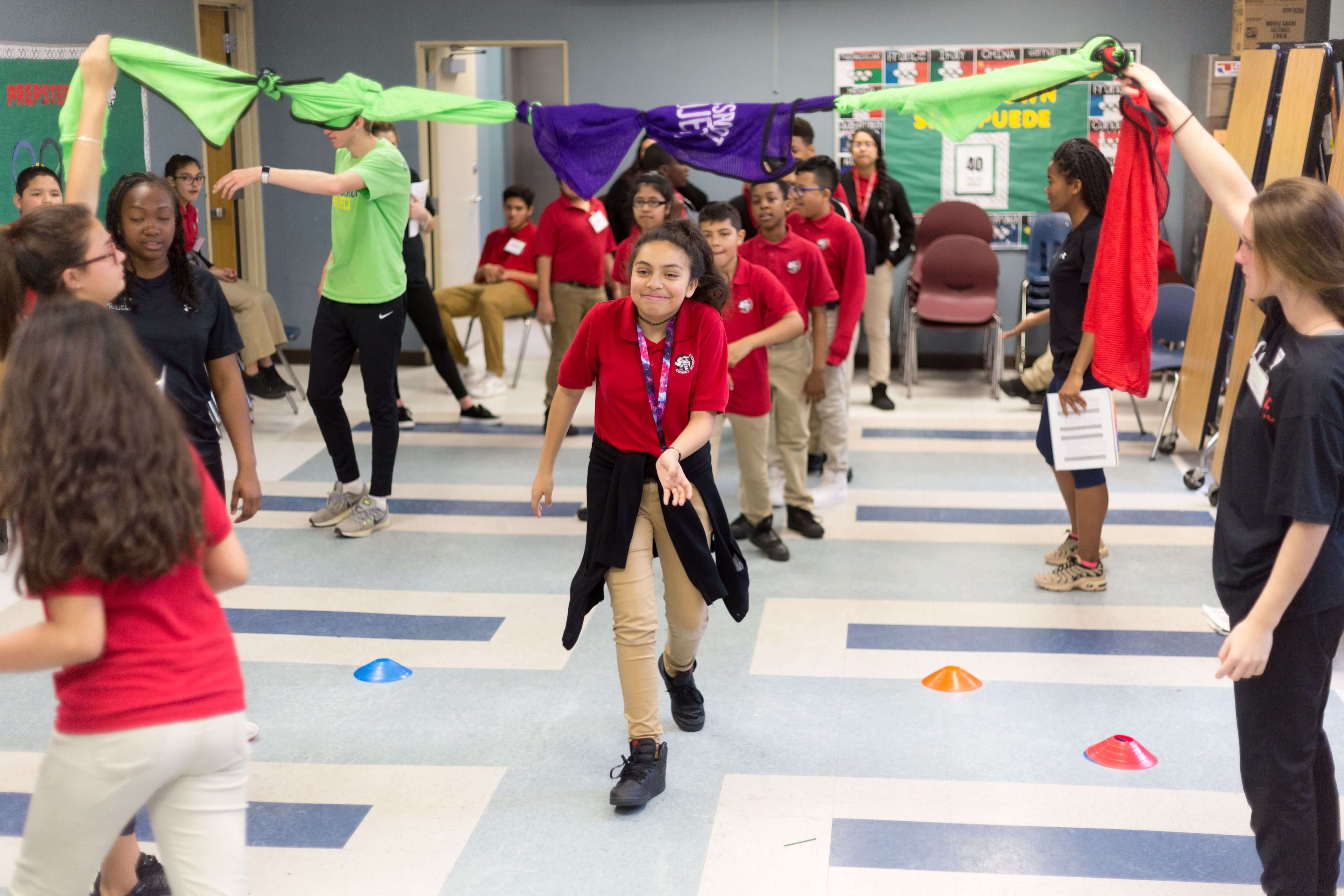 Students learn about mental health during a 2019 school-based health education session
Students learn about mental health during a 2019 school-based health education session
The Grassroot Project (TGP) leverages the excitement, relatability and popularity of sports to provide much-needed health literacy and social empowerment programs to middle school youth. Its team of more than 1,000 NCAA varsity athletes and over 7,000 DC teens are committed to making America's cities healthier.
Typically, TGP engages 100-150 Latinx students in its programs, where trained NCAA college athletes facilitate an innovative three-year sports-based health education curriculum covering nutrition & physical health, sexual health and mental health promotion across 10 annual sessions.
The organization uses sport to both increase student’s retention of key health messages and to break the ice around sensitive health topics. By combining movement with learning, TGP increases physical activity in schools while also helping students to meet basic health literacy standards.
Tyler shared that while the Latinx population contributes immensely to the culture and vibrancy of the DC community, they can be overlooked in the design of health programs and the health systems offered to them. TGP believes that its programming should not only cater directly to the health needs of the Latinx population, but should also be accessible and culturally appropriate for them.
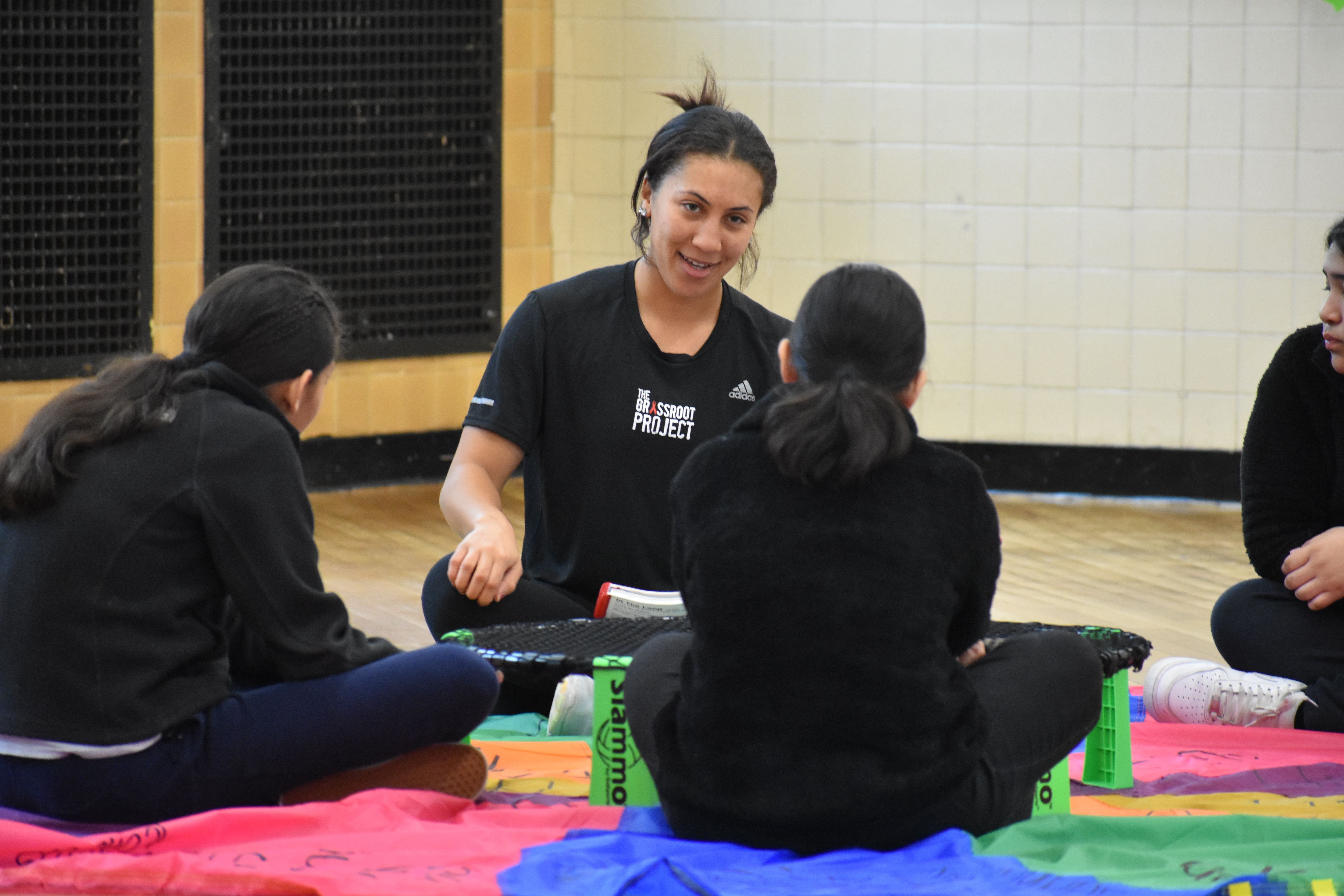
During the pandemic, TGP has kept its vital health programs running virtually facilitated “live” by their athletes. In 2020, they reached nearly 1,000 students alone. And, with data showing that people are 6 times more likely to die of COVID in the DC Latinx community than in white communities (APM Research Lab, 2021), it recognized the importance of building a targeted COVID-19 curriculum.
“This data calls on us to not only ensure that our Latinx students and families are provided with prevention information and COVID-19 support, but it also creates an even stronger sense of urgency to fight harder in the battle for health equity,” Tyler emphasized. “We cannot continue to accept a world in which skin color or ethnic background dictate health outcomes, and our organization is committed to continuing the fight for health equity.”
Currently, TGP offers after-school “Grassroots Fam” workshops for parents and caregivers to further support children’s health offered in both English and Spanish. It also built partnerships with other community-based organizations (Mary’s Center, La Clinica and LAYC) to make sure that programs are culturally specific and address the questions and concerns of the Latinx community.
Tyler closed our conversation, sharing that he is extremely grateful for collaborations with teachers, students, coaches, community partners and mission-aligned supporters who want to help create a prioritized culture of health -- particularly for the Latinx community. He also noted that TGP is indebted to its student-athletes who continue to go above and beyond to help keep the communities it serves healthy and strong.
LOVE.FÚTBOL - NEW YORK CITY (USA), MEXICO CITY (MEXICO) & RECIFE (BRAZIL)
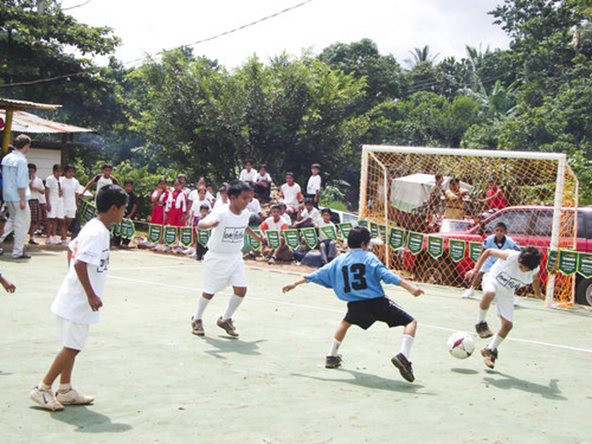 love.fútbol's first pitch - Villa Nueva, Guatemala
love.fútbol's first pitch - Villa Nueva, Guatemala
With strong roots in Hispanic and Latino communities, the multinational love.fútbol is dedicated to a providing ‘more than a place to play’ for every child. Through the power of passion and play, it partners with and mobilizes vulnerable communities to create, reclaim and redefine sports spaces as inclusive centers of community and lasting platforms for social growth.
While most of its projects have been outside of the US, the non-profit organization looks forward to working inside the country in the future, particularly ahead of the 2026 FIFA World Cup taking place across Canada, Mexico and the United States. It has two projects committed in communities of color in the US within the next year and is working with partners to take on additional US projects which will have a specific focus and celebrate the achievements of Hispanic and Latino communities.
love.fútbol, whose team and board members are largely Hispanic, has collaborated with some of the biggest names in sport, business and non-profit to create safe sports spaces for nearly 70,000 children, youth and adults to be active, connect, grow and learn. Over the years, it has built 52 pitches around the world with 24 located in Hispanic countries (Guatemala, Mexico, Colombia, Argentina, the Dominican Republic and Puerto Rico).
Starting with its very first project in Guatemala in 2007, its history and team have always included these communities. It was there that they met Enrique, a kind and quiet boy from Villa Nueva, a village in the far west of the country. His family struggled to put food on the table and his father pulled him out of school to work to help earn money for the family. Enrique loved to play football and often volunteered during the project’s community “Build Days.” When asked why he came, he responded “because I want to play here too.”
14 years later, the Villa Nueva pitch is still active, providing a safe place for youth to play the game they love. Emilio shared that it was the impact of this foundational project that shaped love.fútbol’s work and development strategy. “It helped us prioritize cultures who love the game and communities experiencing a wide range of social issues, naturally starting with projects in our own region.” The organization provides the raw materials and guidance to construct the pitches, but the communities are responsible for donating land, project planning and volunteer labor for building.
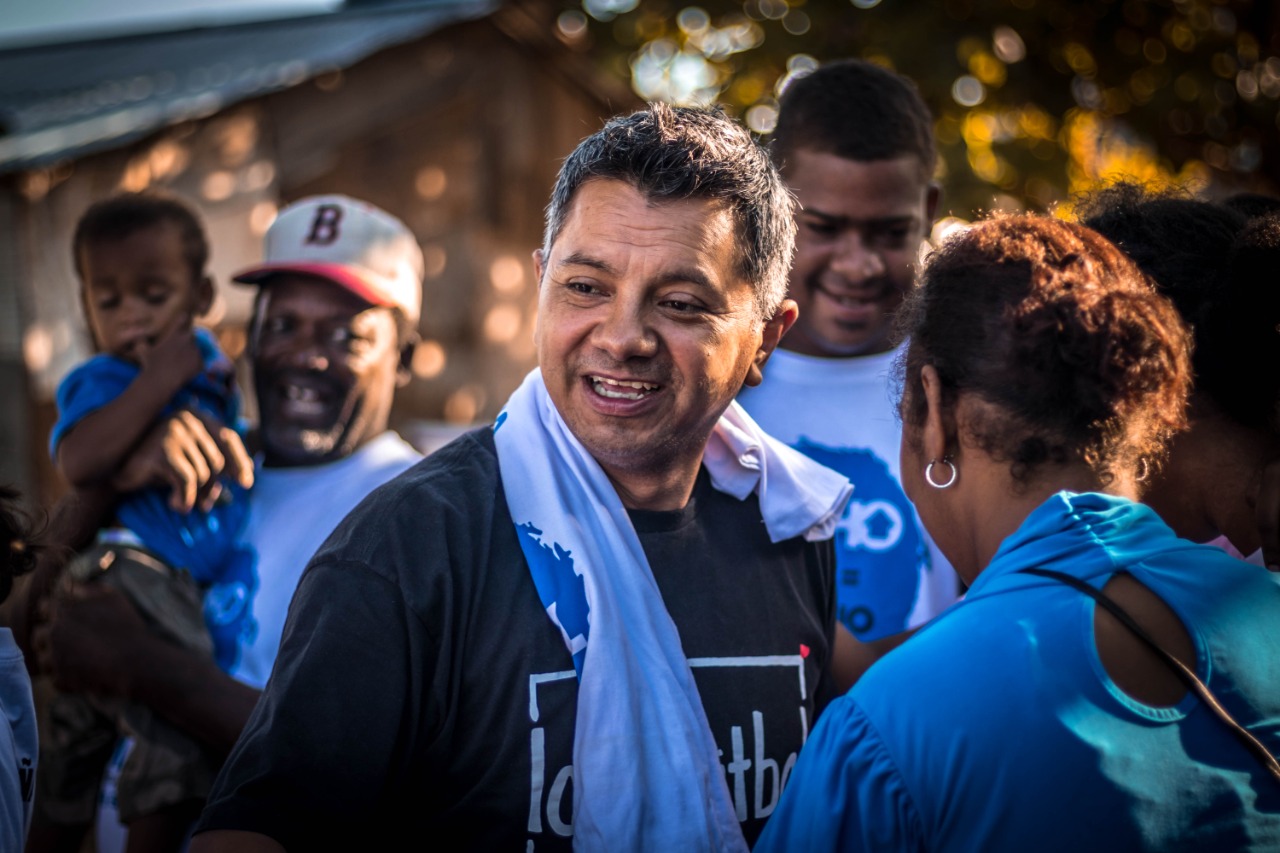
love.fútbol has always envisioned its growth and mission to be run by people native to the countries where it operates. Its Mexico team is particularly expanding, serving as a bridge for cross-cultural projects with the US, specifically targeting Hispanic communities. Staff value the practice of adopting and harnessing the opportunities and strengths of local assets, culture and history no matter where they are.
Emilio closed with the message that connecting in a meaningful way with the local culture is key to its mission. “Despite these differences, we work to find a common denominator, which is the leadership that exists within each of us and the dedication to a simple goal that every child has a space to play. This is what links all of the work that we do and helps us overcome potential barriers and cultural differences.”
You can check out love.futbol’s projects on social media in English and Spanish.